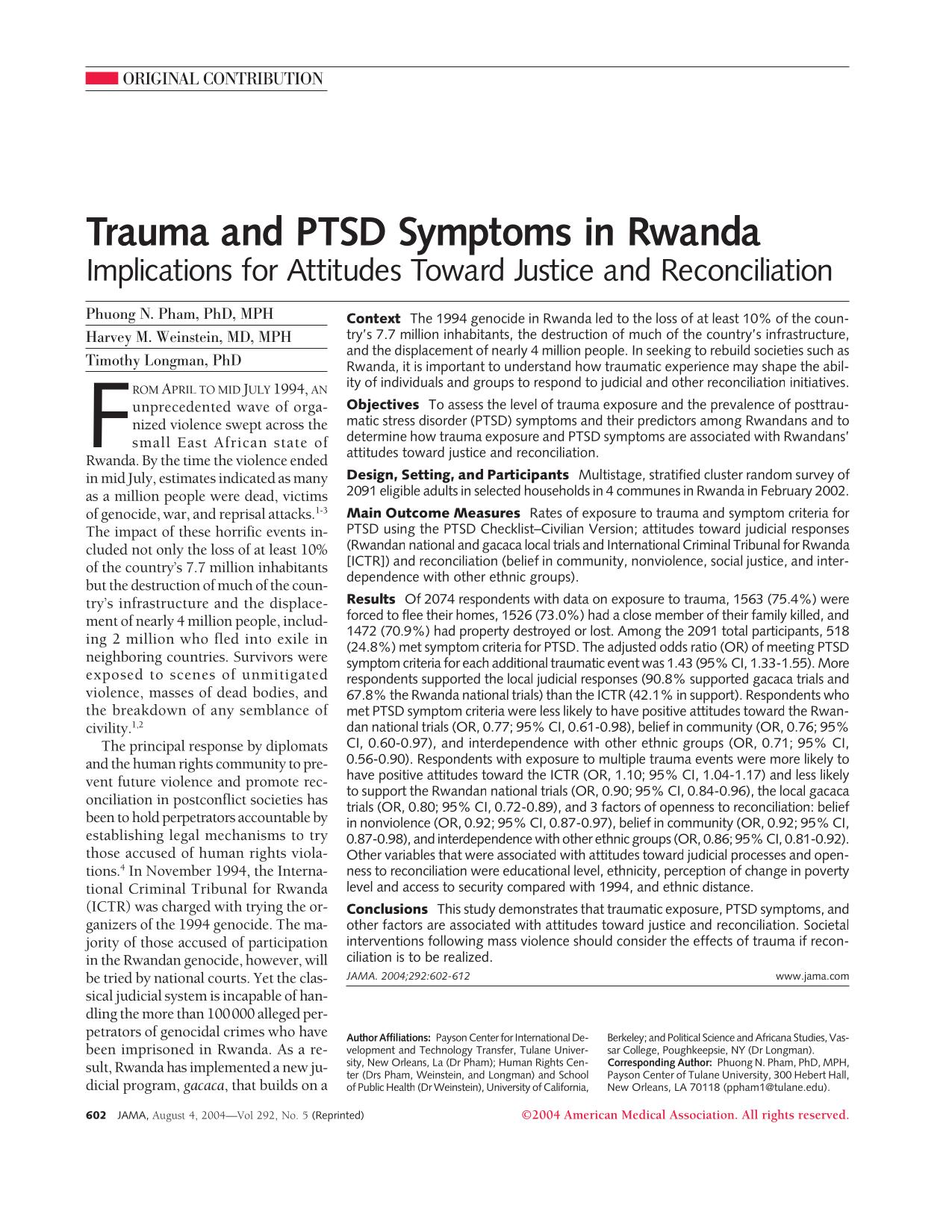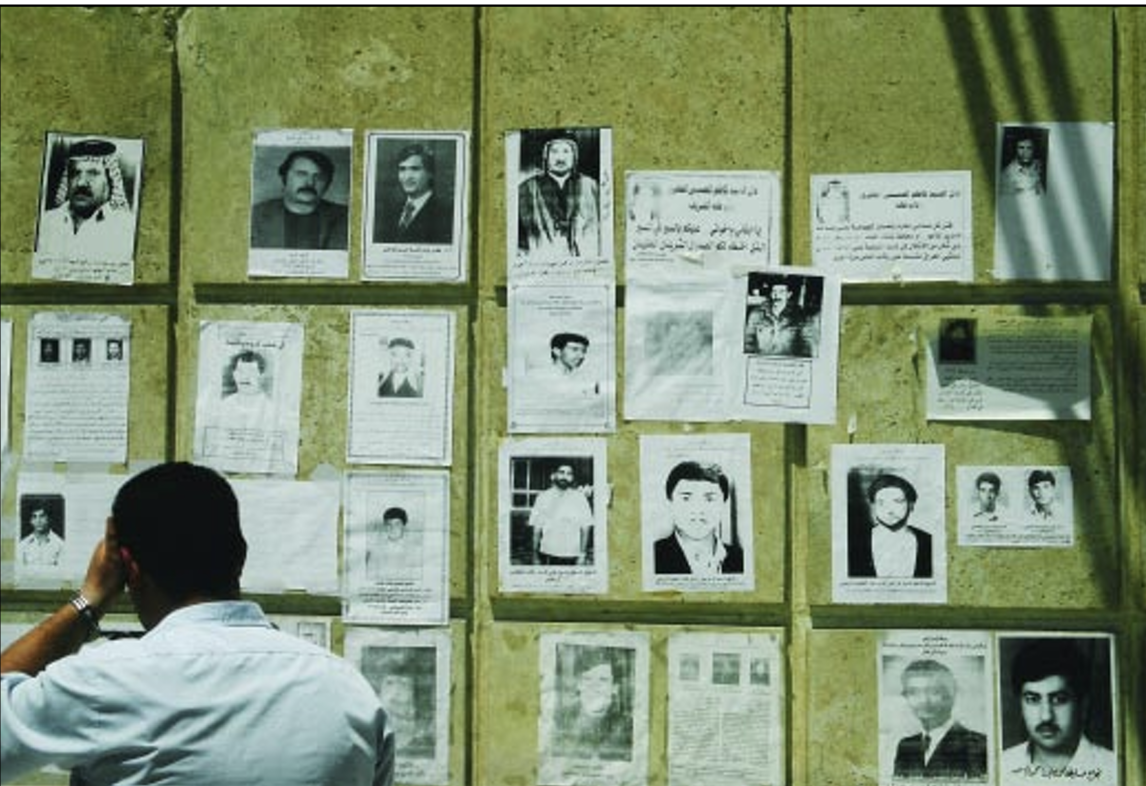Trauma and PTSD Symptoms in Rwanda: Implications for Attitudes Toward Justice and Reconciliation
Download PDFPublication Date
August 4, 2004
Publication Type
Journal Article
Topic(s)
Conflict
Summary
The 1994 genocide in Rwanda led to the loss of at least 10% of the country’s 7.7 million inhabitants, the destruction of much of the country’s infrastructure, and the displacement of nearly 4 million people. In seeking to rebuild societies such as Rwanda, it is important to understand how traumatic experience may shape the ability of individuals and groups to respond to judicial and other reconciliation initiatives. This study demonstrates that traumatic exposure, PTSD symptoms, and other factors are associated with attitudes toward justice and reconciliation. Societal interventions following mass violence should consider the effects of trauma if reconciliation is to be realized.

